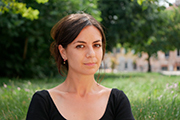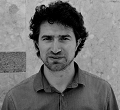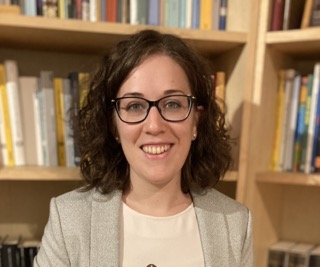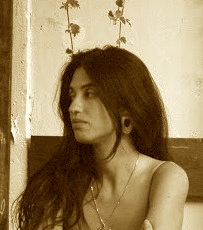Studying at the University of Verona
Here you can find information on the organisational aspects of the Programme, lecture timetables, learning activities and useful contact details for your time at the University, from enrolment to graduation.
Academic calendar
The academic calendar shows the deadlines and scheduled events that are relevant to students, teaching and technical-administrative staff of the University. Public holidays and University closures are also indicated. The academic year normally begins on 1 October each year and ends on 30 September of the following year.
Course calendar
The Academic Calendar sets out the degree programme lecture and exam timetables, as well as the relevant university closure dates..
| Period | From | To |
|---|---|---|
| Sem 1A | Sep 23, 2019 | Oct 31, 2019 |
| Sem 1B | Nov 11, 2019 | Jan 11, 2020 |
| Sem 2A | Feb 17, 2020 | Mar 28, 2020 |
| Sem 2B | Apr 6, 2020 | May 30, 2020 |
| Session | From | To |
|---|---|---|
| Sessione d'esame invernale | Jan 13, 2020 | Feb 15, 2020 |
| Sessione d'esame estiva (gli esami sono sospesi durante la sessione di laurea) | Jun 3, 2020 | Jul 25, 2020 |
| Sessione d'esame autunnale | Aug 24, 2020 | Sep 19, 2020 |
| Session | From | To |
|---|---|---|
| Sessione di laurea estiva | Jul 6, 2020 | Jul 11, 2020 |
| Sessione di laurea autunnale 19-20 | Nov 2, 2020 | Nov 7, 2020 |
| Period | From | To |
|---|---|---|
| Festa di Ognissanti | Nov 1, 2019 | Nov 1, 2019 |
| Sospensione delle lezioni | Nov 2, 2019 | Nov 2, 2019 |
| Festa dell'Immacolata | Dec 8, 2019 | Dec 8, 2019 |
| Vacanze di Natale | Dec 23, 2019 | Jan 6, 2020 |
| Vacanze di Pasqua | Apr 10, 2020 | Apr 14, 2020 |
| Festa della Liberazione | Apr 25, 2020 | Apr 25, 2020 |
| Festa del Lavoro | May 1, 2020 | May 1, 2020 |
| Sospensione delle lezioni | May 2, 2020 | May 2, 2020 |
| Festa del Santo Patrono | May 21, 2020 | May 21, 2020 |
| Festa della Repubblica | Jun 2, 2020 | Jun 2, 2020 |
| Vacanze estive | Aug 10, 2020 | Aug 15, 2020 |
Exam calendar
Exam dates and rounds are managed by the relevant Culture and Civilisation Teaching and Student Services Unit.
To view all the exam sessions available, please use the Exam dashboard on ESSE3.
If you forgot your login details or have problems logging in, please contact the relevant IT HelpDesk, or check the login details recovery web page.
Should you have any doubts or questions, please check the Enrollment FAQs
Academic staff
 lucilla.calogero@univr.it
lucilla.calogero@univr.it
 luca.digiovanni@univr.it
luca.digiovanni@univr.it
 lor.reg@alice.it
lor.reg@alice.it
 elena.zilotti@univr.it
elena.zilotti@univr.it
 silvia.zollo@univr.it
silvia.zollo@univr.it
Study Plan
The Study Plan includes all modules, teaching and learning activities that each student will need to undertake during their time at the University.
Please select your Study Plan based on your enrollment year.
1° Year
| Modules | Credits | TAF | SSD |
|---|
1 module between the following1 module among the following2° Year activated in the A.Y. 2020/2021
| Modules | Credits | TAF | SSD |
|---|
1 module among the following1 module among the following| Modules | Credits | TAF | SSD |
|---|
1 module between the following1 module among the following| Modules | Credits | TAF | SSD |
|---|
1 module among the following1 module among the following| Modules | Credits | TAF | SSD |
|---|
Legend | Type of training activity (TTA)
TAF (Type of Educational Activity) All courses and activities are classified into different types of educational activities, indicated by a letter.
Type D and Type F activities
| years | Modules | TAF | Teacher |
|---|---|---|---|
| 1° 2° | Lectures "Musiche/Culture/Civiltà" | F |
Vincenzo Borghetti
(Coordinator)
|
| 1° 2° | Worshop for cultral events | F | Not yet assigned |
| years | Modules | TAF | Teacher |
|---|---|---|---|
| 1° 2° | Lectures "Musiche/Culture/Civiltà" | F |
Vincenzo Borghetti
(Coordinator)
|
| 1° 2° | Worshop for cultral events | F | Not yet assigned |
| years | Modules | TAF | Teacher |
|---|---|---|---|
| 1° 2° | Marchants of Culture. Editorial distribution and promotion | F |
Federica Formiga
(Coordinator)
|
| 1° 2° | Workshop on digital publishing | F |
Andrea Bongiorni
(Coordinator)
|
| 1° 2° | Worshop for cultral events | F | Not yet assigned |
| 1° 2° | Workshop on transmedia storytelling | F |
Elena Zilotti
(Coordinator)
|
| years | Modules | TAF | Teacher |
|---|---|---|---|
| 1° 2° | Workshop on digital publishing | F |
Andrea Bongiorni
(Coordinator)
|
| 1° 2° | Worshop for cultral events | F | Not yet assigned |
| 1° 2° | Workshop on transmedia storytelling | F |
Elena Zilotti
(Coordinator)
|
| years | Modules | TAF | Teacher |
|---|---|---|---|
| 1° 2° | "Common world. 2022 Arendt Seminars | F |
Olivia Guaraldo
(Coordinator)
|
Textual analysis, contemporary literature and newspaper writing (m) (2019/2020)
The teaching is organized as follows:
Learning outcomes
1ST MODULE The course offers a proficiency in textual and linguistic analysis of the journalistic texts of various origins, typology and destination, as a premise for a professional use of journalistic Italian language. 2ND MODULE The course aims to introduce the student to the study of modern and contemporary Italian literature, with particular attention to the experience of writers who, during the twentieth century, have engaged in the journalistic or editorial field. Through the study of an exemplary case, the student, at the end of the course, will have to demonstrate to know the relationships between literature, publishing and journalism, as well as being able to read and analyze texts and situate them in the history of Italian literature.
Program
------------------------
MM: ANALISI DEL TESTO E SCRITTURA GIORNALISTICA (M)
------------------------
Contents of the course The course is divided into four main parts:
1) General characters of journalistic language: variabilty due to the type of the newspapers, to cultural or political position, to thematic sections, to diachrony; prevalent linguistic models; communicative functions: news and comment.
2) Italian language of journalism: syntax, lexicon, rhetorc, argumentation.
3) Journalism and new media: consequences on language and textual structure.
4) Text typologies: layout; headlines; linguistic and argumentative features of different article's types; text analysis.
MATERIALS AND DIDACTIC METHOD
During the lectures the topics of the four thematic areas of the course will be explained through specific textual analyzes of the different types of articles, in order to define their fundamental peculiarities. The e-learning platform will be used to provide additional material useful for lectures and more generally for active communication with students, regarding the bibliography, the topics of study and any other information concerning the course. In the last part of the course (2-3 lessons) students will be invited to exhibit in the classroom and discuss the results of the analysis of a journalistic text with their classmates and teacher.
Non-attending students will be supported with regard to the textbooks, also through the e-learning platform.
The content of the textbooks, as well as the lessons and exercises, is part of the program.
------------------------
MM: LETTERATURA, EDITORIA E GIORNALISMO (M)
The course intends to investigate the literary works of Natalia Ginzburg, from narrative to journalistic works. In particular, the course will be organized according to following point:
1. Portrait of Natalia Ginzburg
2. Natalia Ginzburg and the collaboration with Einaudi publishing house
3. The narrative work of Natalia Ginzburg
4. Reading and commentary of two exemplary works: Lessico familiare (1963) and Caro Michele (1973)
5. Journalistic writing and collaboration with newspaper («La Stampa», «Il Giorno», «Corriere della Sera»)
6. Reading and commenting on journalistic texts: Mai devi domandarmi (1970) and Vita immaginaria (1974)
DIDACTIC METHOD
Lectures, with moments of exchange between teacher and students for the reading and analysis of texts.
DIDACTIC MATERIALS
In addition to the bibliography indicated below, other materials will be uploaded during the course on the e-learning platform. Non-attending students are asked to contact the teacher for additional bibliography.
------------------------
Bibliography
| Author | Title | Publishing house | Year | ISBN | Notes |
|---|---|---|---|---|---|
| Massimo Palermo | Italiano scritto 2.0. Testi e ipertesti, cap. 1-2-3 | Carocci | 2017 | ||
| Ilaria Bonomi | La lingua dei quotidiani, in La lingua italiana e i mass media, a cura di Ilaria Bonomi, Andrea Masini e Silvia Morgana, pp. 127-164 | Carocci | 2004 | ||
| Luca Serianni | Leggere, scrivere, argomentare. Prove ragionate di scrittura | Laterza | 2013 | ||
| Andrea Masini | L'italiano contemporaneo e la lingua dei media, in La lingua italiana e i mass media, a cura di Ilaria Bonomi, Andrea Masini e Silvia Morgana, pp. 11-32 | Carocci | 2004 | ||
| Riccardo Gualdo | L’italiano dei giornali. | Carocci | 2017 | ||
| Vincenzo Consolo | Cosa loro. Mafie tra cronaca e riflessione | Bompiani | 2017 | ||
| Vincenzo Consolo | Esercizi di cronaca | Sellerio | 2013 | 88-389-2907-6 | |
| Sergio Saviane | I misteri di Alleghe | Mondadori | 1964 | ||
| Dino Buzzati | La "nera" di Buzzati (Crimini e misteri / Incubi) | Mondadori | 2002 | 978-88-04-51019-2 |
Examination Methods
------------------------
MM: ANALISI DEL TESTO E SCRITTURA GIORNALISTICA (M)
------------------------
For all students, attending and not attending, examination includes a written test, which will consist of a series of open questions.
The objectives of the assessment test are:
a) verify the analytical knowledge of the topics of the program;
b) verify the capacity for reflection and elaboration in relation to specific topics.
All students, attending and not attending, are also required to present, before the exam date, a written essay containing a brief linguistic and structural analysis of a journalistic text to be agreed with the teacher.
The final vote will consider the results of the classroom test and the written essay.
------------------------
MM: LETTERATURA, EDITORIA E GIORNALISMO (M)
Written test so organized: three open questions on the aspects discussed during the course.
At least one of the questions includes analysis and commentary on the texts.
The duration of the test will be two hours.
The questions will be different for attending and not-attending students.
------------------------
Career prospects
Module/Programme news
News for students
There you will find information, resources and services useful during your time at the University (Student’s exam record, your study plan on ESSE3, Distance Learning courses, university email account, office forms, administrative procedures, etc.). You can log into MyUnivr with your GIA login details: only in this way will you be able to receive notification of all the notices from your teachers and your secretariat via email and soon also via the Univr app.
Graduation
List of theses and work experience proposals
| theses proposals | Research area |
|---|---|
| Laureandi Editoria e Giornalismo: vademecum | Various topics |
| TESI SU COMUNICAZIONE DELL’AGROALIMENTARE | Various topics |
| Stage | Research area |
|---|---|
| Proposte stages - Centro di ricerca Skenè | Various topics |
| TIROCINIO IN GIORNALISMO E SOCIAL MEDIA | Various topics |

 +39 045802 8409
+39 045802 8409
























